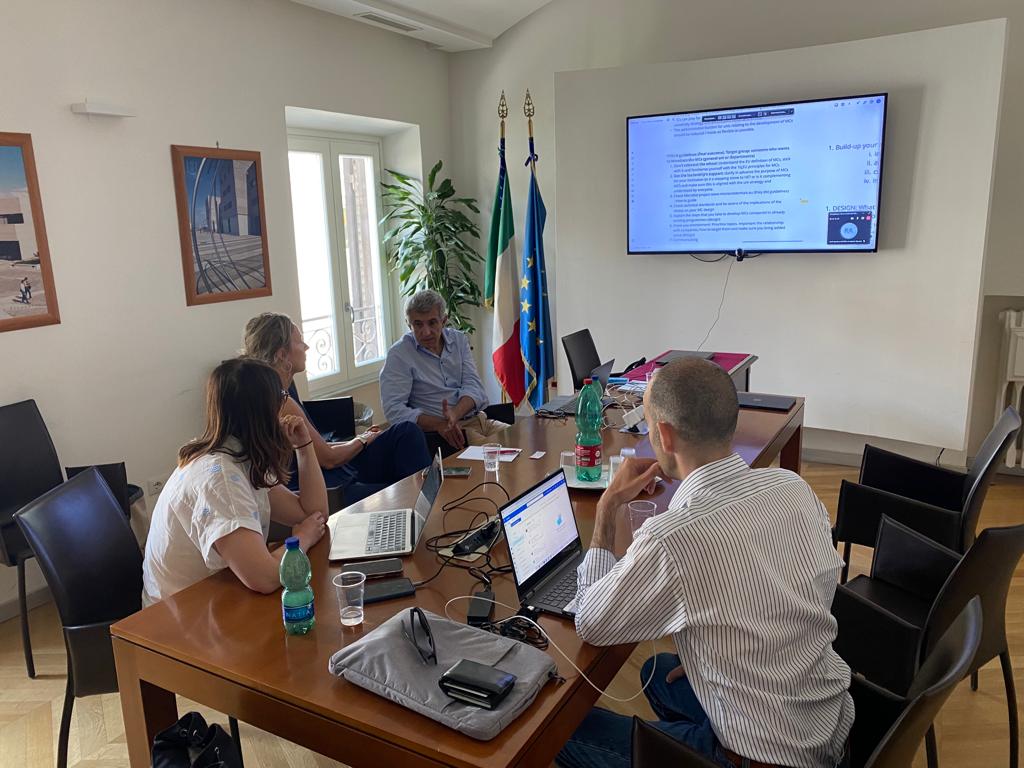In line with the Recommendation on a European approach to micro-credentials adopted by the Council of the European Union in 2022, the ProcToGo Joint-Staff Training entitled Designing a Framework for micro-credentials, explored the state of the art of micro-credentials and identified a common ground for designing a framework for micro-credentials.
The Training, hosted by Tor Vergata University of Rome, was organised within the Erasmus+ Strategic Partnership project ProcToGo from June 26th to June 28th . It was attended by representatives from all project partner universities: University of Antwerp, University of Bremen, Universidad Carlos III de Madrid, Nova University Lisbon. In addition, the meeting was also joined by representatives from the Universities of Konstanz, Potsdam, Limerick (on line) and the YERUN Brussels Office.
The meeting started with the keynote speech on “The Challenge of understanding micro-credentials” by Carlos Delgado Kloos – newly appointed Rector’s Delegate on Microcredentials at Universidad Carlos III de Madrid. Carlos Delgado Kloos laid the ground for the following discussion highlighting the many definitions attached to the micro-credentials concept and its controversial overlaps with digital badges.
The experiences shared by each university highlighted that despite the growing interest in experimenting with initiatives, the level of implementation of micro-credentials across most European countries is still in a preliminary phase. Some key barriers need to be overcome to make micro-credentials more valuable and recognised. It appears that those countries already widely adopting micro-credentials managed to define a national framework as an initial step towards the effective implementation of micro-credentials. This is the case of Ireland, as showed by the the University of Limerick.
It appears that a national framework is an initial required step as it defines what can be defined as micro-credential and how micro-credentials can be stacked. On such a basis the universities can design a clear strategy for developing their offer of micro-credentials offer, with a careful analysis of the university core competences and of the local labour market requirements. An awareness of the implications of the technological and organisational choices is key for a sound development of the micro-credential initiatives.
.
The programme of the the ProcToGo Joint-Staff Training can be found here.
.
Participants:
Jan Dries – University of Antwerp
Petra Boxler* and Christiane Bottke – University of Bremen
Carlos Delgado Kloos and Carlos Alario – Universidad Carlos III Madrid
Ulrich Wacker- University of Konstanz
Geraldine Caroll* and Sarah Brady* – University of Limerick
Mauro Castelli – Nova University Lisbon
Kerstin Altherr – University of Potsdam
Corrado Cerruti – Tor Vergata University of Rome
Chiara Colella – YERUN (Young European Research Universities Network)
.
*Online participants.










